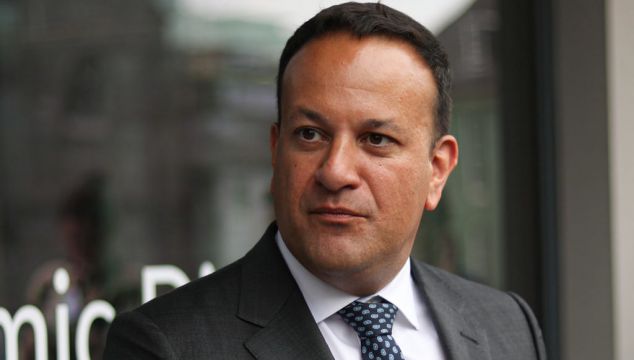Historical convictions for consensual sexual activity between men in Ireland are to be disregarded, the Government has announced.
It comes 30 years after the Irish government passed legislation which decriminalised homosexuality in 1993.
Taoiseach Leo Varadkar, Tánaiste Micheál Martin, and Minister for Justice Helen McEntee confirmed the legislative plans during Pride Week in Dublin, which also include a fresh National Sexual Health Strategy, and one-off funding for HIV Ireland.
The announcements came at a meeting with LGBT+ groups chaired by Mr Varadkar in Government Buildings on Tuesday.
It follows the final report of a Working Group set up to examine the disregard of historical convictions for consensual sexual activity between men.
That report contains 95 recommendations regarding the introduction of a statutory scheme to enable the disregard of relevant criminal records, including recommendations on eligibility standards, the application process and the offences to be included in the scheme.
It will be published in the coming days to mark Pride Week.
Mr Varadkar said his government is committed to the promotion and protection of LGBT+ rights.
“Ireland has become a proud, progressive, and modern State,” he said.
“We have made great strides to promote equality and respond to the changing needs of a diverse population.
“However, we are not naive to think that LGBTQI+ people don’t continue to face significant barriers to full participation in public life.
“The Irish Government is committed to the promotion and protection of LGBTQI+ rights and we will work to better the lives of all in the community. I am particularly pleased that we are now moving to disregard historical convictions for consensual sexual activity between men.
“This was a commitment I made previously and I’m really pleased this is taking a step further during Pride Week.”
Meanwhile Minister for Children, Equality, Disability, Integration & Youth Roderic O’Gorman is to bring draft laws to Government this year to criminalise the practice of conversion therapy.
The definition of conversion therapy is likely to encompass practices targeted at a person’s sexual orientation or gender identity, and which aims to “convert” someone from homosexual to heterosexual preferences.
Mr O’Gorman said described conversion practices as “cruel processes, rooted in shame and stigma”.
“The clinical opinion, the evidence and the lived experience of those who have faced conversion practices are clear – such practices are ineffective, unscientific, and most importantly, profoundly harmful,” he said.
“The Government is committed to banning this outdated practice, and I look forward to bringing legislation through the Oireachtas shortly.”
Among other measures being planned include €233,000 in funding to develop a new app and online platform to help people along a digital health pathway for PrEP treatment and €30,000 for HIV Ireland for a new garden space at it’s Dublin offices.
Elsewhere, drafting is underway on refreshed National Sexual Health Strategy to update the last policy launched in 2015 to take into account changes such as marriage equality and access to abortion.
There will also be a new Hate Crime Bill which is expected to be enacted this Autumn.
Mr Martin added: “Ireland has come a long way as a country in our journey to achieve full inclusivity and equality.
“As we celebrate Pride, this Government is committed to continuing our work to improve the lives of LGBTQI+ people who still face discrimination and challenges in their everyday lives. There is still more work to do to foster a society that supports and cherishes all people equally.”







